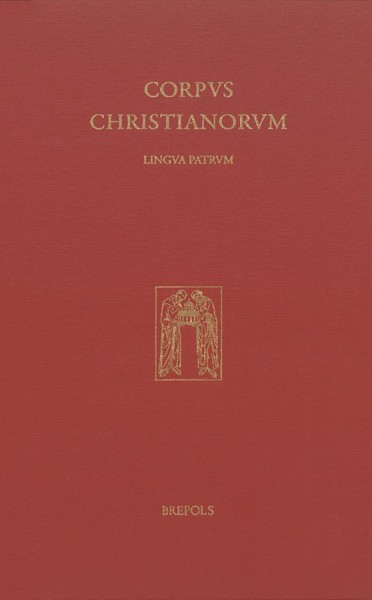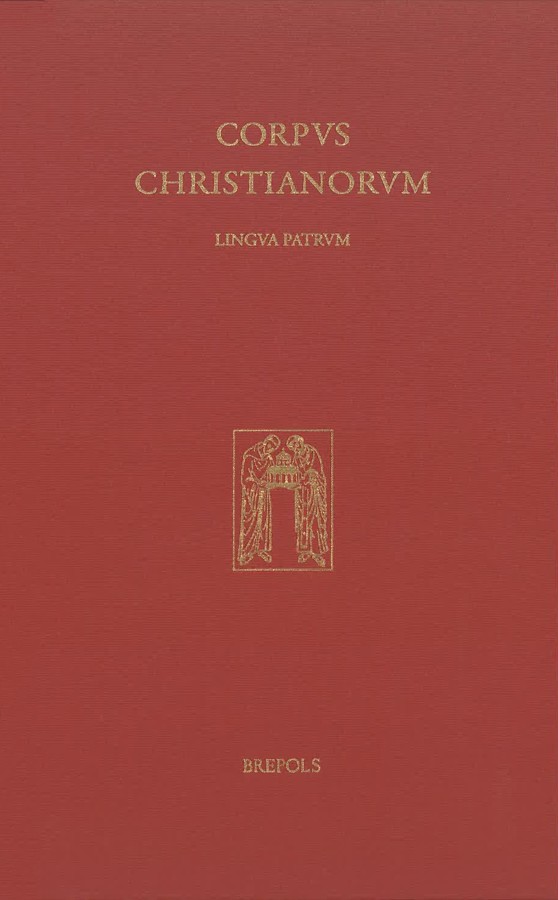
Translation Dynamics in Early Christian Literature
Vittorio Berti, Emanuela Colombi, Carla Noce (eds)
- Pages: approx. 580 p.
- Size:155 x 245 mm
- Illustrations:43 tables b/w.
- Language(s):English, Italian, Spanish
- Publication Year:2024
- € 290,00 EXCL. VAT RETAIL PRICE
- ISBN: 978-2-503-61080-1
- Hardback
- Forthcoming (Aug/24)
*How to pre-order?
A multifaceted exploration of the dynamics of translating patristic texts in Late Antiquity, mainly but not exclusively from Greek into Latin and Syriac
Vittorio Berti, Emanuela Colombi, and Carla Noce are professors of Christian History, respectively at the Universities of Padua, Udine, and Roma Tre. They share a long-standing research interest in patristic translations across various source and target languages, as well as in the translational methodologies of ancient religious texts and the historical-cultural significance they hold. Together, they co-directed a National Research Project (PRIN) launched in 2012, focusing on early translations of Greek Fathers into Latin and Syriac.
This volume marks the culmination of the PRIN Project ‘Tradurre tradire tramandare’, funded by the Italian Ministry of University and Research and coordinated by the editors. Bringing together contributions on translations of patristic texts from Greek into Latin and Syriac, with excursions into other linguistic domains and types of translation and rewriting, the aim is to investigate specific case studies, highlighting at the same time common methodological issues: texts’ authorship and attributions; the relationships between theories and practices of Christian translations; receptions and adaptations; and promising future avenues for research.
This scholarly exploration of ancient Christian texts reveals the profound implications of translation as a conduit for comprehension, reinterpretation, and the enduring dissemination (as well as selection) of ideas across different eras and geographical landscapes. The contributions in this volume represent a diverse array of voices, collectively delving into the intricate interplay between translation, context, and transformation. Each contribution offers valuable insights into the labyrinthine corridors of linguistic metamorphosis, where the boundaries of faithfulness and creativity intersect, breathing new meanings into texts as they journey from the source to the target language.
Introduction: Translating, Betraying, and Transmitting in Early Christian Literature (Vittorio Berti, Emanuela Colombi & Carla Noce)
1. Greek Fathers in the Syriac World
Le epistole sulla Verginità attribuite a Clemente di Roma. Appunti per una riconsiderazione della storia della traduzione in ambito siriaco (Marco Pavan)
Il movimento di traduzione dei padri antiocheni nella chiesa di Persia, da Hiba di Edessa a Mar Aba (Vittorio Berti)
Riflessioni intorno ad alcuni excerpta tratti dalle versioni siriache dell’Historia Lausiaca di Palladio (Claudia Tavolieri)
Finding a Semitic Voice for Chrysostom: The Syriac Versions of Chrysostom’s Homilies on Matthew (Jeff Childers)
The Syriac, Arabic and Armenian Versions of Evagrius Ponticus’ Antirrheticus and their Approach to Translating the Bible (Adrian Pirtea)
New Discoveries on Gregory of Nyssa in Syriac (Emiliano Fiori)
A History of Syriac Translation Techniques in their Wider Contexts: The Works of Severus of Antioch as a Case Study (Yonatan Moss)
2. Greek Fathers in the Latin World
La versione di Rufino della Storia ecclesiastica di Eusebio e delle Omelie di Basilio: una traduzione letteraria (Carla Lo Cicero & Sabrina Antonella Robbe)
‘Anomalous’ Biblical Quotations in the Pseudo-Origenian Homilies on the Gospel of Matthew (CPG, 1510-1517) (Emanuela Colombi)
Misled by a Title: The Hidden Ante-Nicene Fathers in Latin Manuscripts (with Some Methodological Remarks) (Marianna Cerno)
È di Rufino la traduzione latina dell’Epistula Clementis ad Iacobum (CPL, 198)? (Maria Veronese)
Hilario de Poitiers como traductor durante la crisis arriana (Samuel Fernández)
3. Further Directions
I Dialogi di Gregorio Magno nella versione greca di Zaccaria: un papa traduttore come interlocutore storico (Giandomenico Ferrazza)
Tradurre il vangelo in versi. La parafrasi come pratica di ‘mediazione culturale’ nell’esegesi di Nonno di Panopoli (Arianna Rotondo)
Alcune considerazioni in margine al De lepra di Metodio di Olimpo (Federica Candido)
Indices





